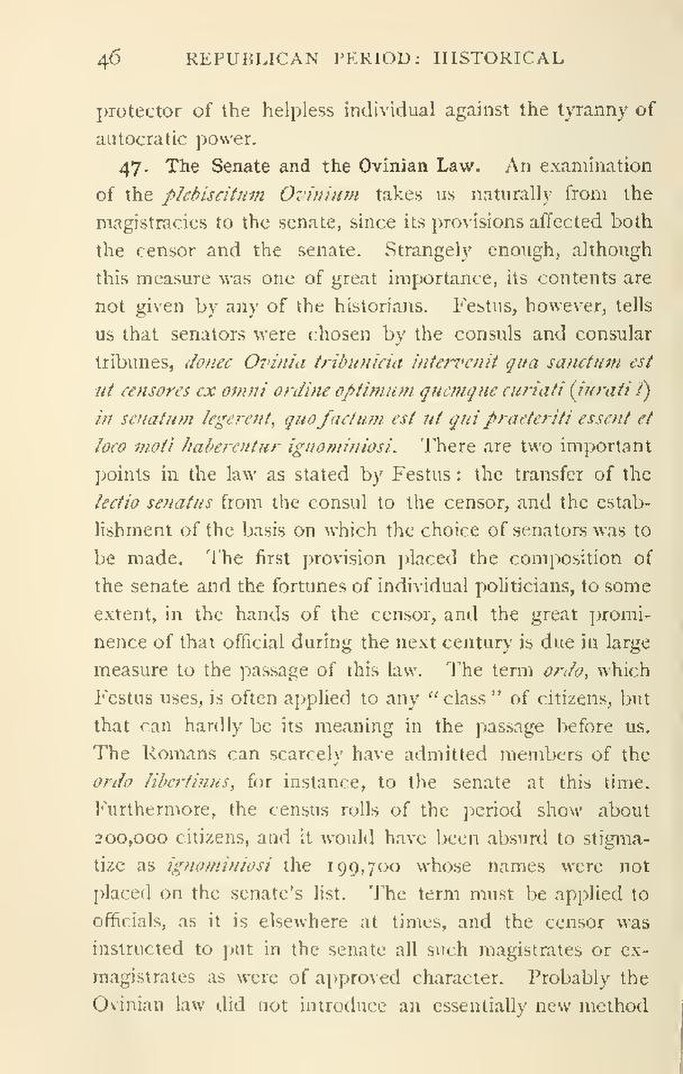protector of the helpless individual against the tyranny of autocratic power.
47. The Senate and the Ovinian Law. An examination of the plebiscitum Ovinium takes us naturally from the magistracies to the senate, since its provisions affected both the censor and the senate. Strangely enough, although this measure was one of great importance, its contents are not given by any of the historians. Festus, however, tells us that senators were chosen by the consuls and consular tribunes, donec Ovinia tribunica intervenit qua sanctum est ut censores ex omni ordine optimum quemque curiati (iurati?) in senatum legerent, quo factum est ut qui praeteriti essent et loco moti haberentur ignominiosi. There are two important points in the law as stated by Festus: the transfer of the lectio senatus from the consul to the censor, and the establishment of the basis on which the choice of senators was to be made. The first provision placed the composition of the senate and the fortunes of individual politicians, to some extent, in the hands of the censor, and the great prominence of that official during the next century is due in large measure to the passage of this law. The term ordo, which Festus uses, is often applied to any "class" of citizens, but that can hardly be its meaning in the passage before us. The Romans can scarcely have admitted members of the ordo libertinus, for instance, to the senate at this time. Furthermore, the census rolls of the period show about 200,000 citizens, and it would have been absurd to stigmatize as ignominiosi the 199,700 whose names were not placed on the senate's list. The term must be applied to officials, as it is elsewhere at times, and the censor was instructed to put in the senate all such magistrates or exmagistrates as were of approved character. Probably the Ovinian law did not introduce an essentially new method
